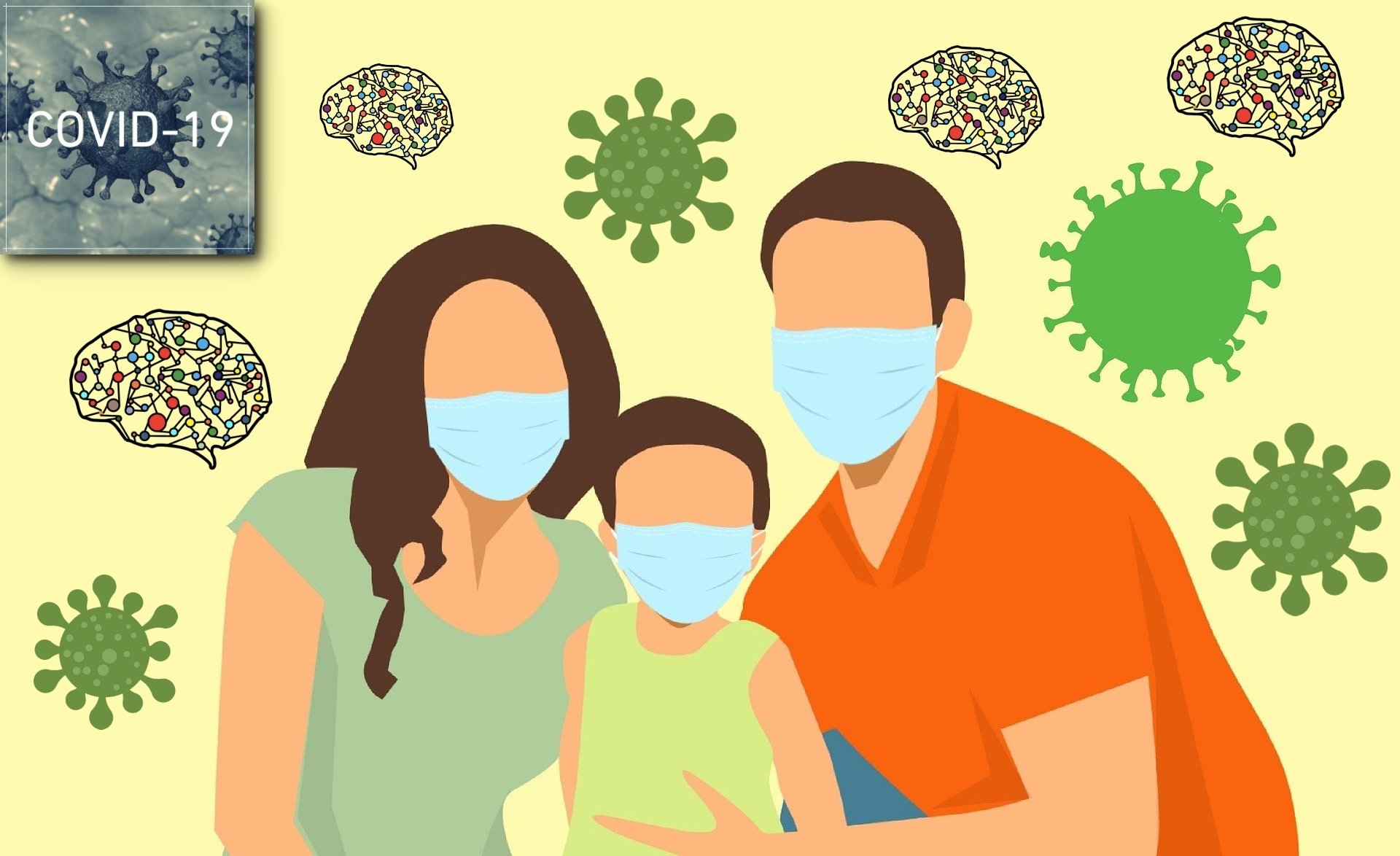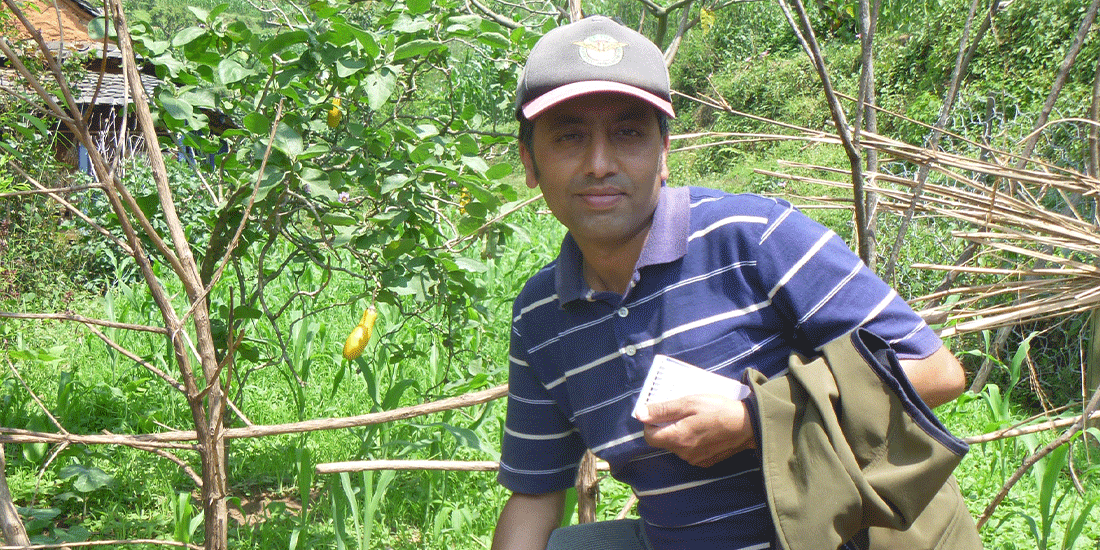Tips and tricks from a counselling psychologist: Staying mentally healthy during the pandemic

As the infection rate with coronavirus variants is skyrocketing and creating a catastrophic situation in the country, a dire need is arising to control the tolls it can take on the general public.
Due to government-issued prohibitory orders, people are locked inside their homes for elongated periods of time. This means that the impacts of the coronavirus are not just related to physical and public health, but also to the mental and emotional aspects of human life.
To cope with the adversity of the pandemic, NepalPress had a conversation with counselling psychologist Meenashi Pokhrel, who provides useful information and tips for everyone to help stay mentally healthy during the lockdown.
It has been more than a year since the pandemic began. People had to stay inside their homes for months last year, and the same situation has arisen today. Is it that people are more terrorized during this lockdown as compared to last year, due to the second wave brought about by the newer and stronger variant?
The situations of last year and this year are different. The infection rate was not as high last year. We were all scared of the coronavirus last year, but precautionary measures were followed well. However, due to the rapidly increasing number of infections, the concern is also over the health system and services in the country. Adopting all health standards is not as easy this time. Everyone has a family member or someone they know that has tested positive for the virus. Due to this, there is a lot of fear in people during the second wave.
What can be the mental challenges that people face while staying at home?
This is a difficult time for people who were already facing mental health issues such as anxiety. However, problems are arising even in people who did not have such issues before. Last year, people were stuck inside for long, and thus staying indoors was challenging. However, this time, coping with the virus and the pandemic and its impacts is a challenge in itself for almost every individual and household.
How is this pandemic affecting relationships between family members?
Before the pandemic started, people would come back to their homes at the end of the day and spend some time with their family members, for example during/after dinner. However, everyone is forced to stay together the whole day right now, whether they like/want it or not. This might be okay for families with healthy relationships, but for those with complicated and strained dynamics, the pandemic is making it even more difficult to cope. In families where issues such as domestic violence or abusive/aggressive parents exist, the victims are having a hard time dealing with it all. Earlier, schools or workplaces would serve as a distraction. Since these are unavailable now, people with less supportive families are facing many difficulties.
Due to the pandemic, people are more glued to their mobile phones and the internet. How is this affecting children and family relationships?
The pandemic has brought upon a situation in which every child needs to have access to a device (phone/laptop) through which they can attend their online classes. Parents may not be able to monitor their children’s activities on the phone all the time, which has led to increased unnecessary exposure to the internet. Besides this, children are also becoming more addicted to gaming as they have more time.
Every situation has two sides. The use of phone/internet can either be done in an addictive way or as a healthy distraction from the pandemic. It is about how and how much we use it, which is upon ourselves, and the use of phones and the internet can be done in a healthy and positive way. In the case of children, it is necessary for parents to effectively monitor what their child is doing and guide them accordingly.
What are the problems people are currently facing that they seek psychological counselling for?
Before the pandemic, people were heavily disturbed by work stress. Now, problems are increasing within the family and the stress that arises from strained relationships in the household.
Those who sought counselling would previously be facing anxiety, depression and related issues. Even though these people are still there, higher numbers of people seek counselling to deal with fear – the fear of death of their family members, relatives, and themselves.
The other issue reported by many is related to lack of support and understanding within families, and unhealthy relationships that exist within them. Individuals are finding it difficult to handle such circumstances, as there is no escape in sight. Thus, a lot of people have these complaints.
During the pandemic, most counsellors and psychologists have been conducting counselling and therapy sessions online. This is a limitation since clients attend the sessions while staying at the very homes where their disturbance or trauma originates from. But for the time being, the sessions conducted this way are effective too.
What is the age group of people that mostly seek counselling?
This may be because I belong to the same age group, and thus clients seek counselling with me, but 16-32 is the most common age group.
Any differences in terms of gender?
The number of females that approach me is higher. They are more open to mental health counselling.
You mentioned that the use of phones or social media can be a good distraction from the pandemic. Due to the kind of professions we are engaged in today, a social media presence and use are mandatory for many. Currently, a lot of information about death as well as pictures of dead bodies are circling the media. How does this affect people’s mental health?
Yes. It is impossible to avoid these kinds of posts, considering the ongoing situation in the country. If you see a post that disturbs you, then take a break from it. Turn your phone down, take a deep breath, wait for some time, and then get back to your phone if you have to.
It is also very important for us to be conscious of the kind of information we are feeding ourselves with. We should be updated with what is going on, but make sure that you limit the amount of negative information that is going into your brain. Do not follow negative information to the extent that it highly disturbs you mentally. This is a choice we can all make for ourselves.
Are there any differences between awareness levels of people in regard to mental health before and during the pandemic?
Definitely. Before the pandemic, we had to make people understand that mental health is as important as physical health. Now, people are aware of this as they face many issues themselves. They are more open to learning about mental health issues and finding solutions. They are more mindful of their symptoms and are also aware of psychological counselling and therapy services, so they also know that they can seek help and where to go for it.
Can you provide any tips and tricks for everyone to stay motivated and positive right now?
This is definitely easier said than done, but there are some basic things we can all do. I suggest always keeping a diary near you. At such stressful times, we all need an outlet to vent our feelings. If you have someone you can talk to, then you should do that, but might not be possible for everyone or all the time, so making a habit of daily journaling about your routine and feelings will prove to be very useful.
Exercising for half an hour a day will also help keep you active and prevent you from feeling bored or lousy.
Basic meditation can also be done. Advanced techniques do not have to be used. Just close your eyes, stay silent, listen to some good music and pay attention to your breathing for a few minutes.
This is also the best time to revive, continue or establish a hobby. If you can commit to growing by doing something new during the pandemic, you will find that you are a different person than who you were before, which will act as both a distraction and motivation for you.
Establish a routine and stick to it. Even if you cannot follow the routine 100%, attempting to do so will keep your mind occupied and something productive will definitely come out of it.
How about children? What should be done with them?
This is also the best time for parents to spend good times with their children. Talking about the ongoing situation will help clear their curiosities and quality time spent with them will help build healthy relationships, which will be a great foundation for them in the future.
While most people are working from home, there are also individuals who are still going to their workplaces. These people return home with fear that comes from the possibility of infection and the risk this poses for their families. What do you suggest to them?
Firstly, taking breaks is very important. This will help refresh your mind as well as keep you productive.
Secondly, it is advisable to be mindful of this fear that we are all facing. While keeping our families safe is important to all of us, making sure that the fear is rational and acting accordingly is the way to go. Even if you have gone out for work and returned home, there is no need to worry too much if you have not had contact with anyone and have maintained distance throughout. Again, journaling is a habit that will be useful here as well. It can give you clarity and thus help maintain a rational state of mind. This may not change everything immediately but developing the habit over a longer-term will certainly help you cope better.
When it comes to mental health, how does one know when to seek professional help or attention?
There are different kinds of help available. A psychiatrist is generally visited for medical treatments of disorders. However, visits to counsellors or psychologists can be done just to check in with your mental and emotional state.
There are signs and symptoms that can show whether professional attention is required. One common example is the loss or disturbance of sleep. If you or someone you know is struggling with sleep, this is a sign that help may be necessary.
Another sign is a change in appetite. Undereating and overeating are both negative symptoms. Many people stress/binge eat when their mental state is disturbed.
Keeping track of the general mood and its changes is also important to recognize signs. Fluctuations in mood, irritability, suppression of emotions are all symptoms that require attention. Thus, observing yourself and your family members is important, in order to keep mental health in check.
Any unusual changes in physical, behavioural, social or psychological habits is a major sign that someone may need professional psychological attention, thus it is advisable to suggest counselling or psychological treatment.
As I said, there do not have to be serious problems for you to visit counsellors or psychologists. Even if there are no signs and symptoms and you just want to check how you are doing mentally, counsellors are always available, and you can make an appointment with them at any time.
Is there anything you have missed that you would like to add?
It is essential for everyone to take care of their mental health. It is okay to cry or shout if you feel like it. Your emotions are always valid.
Always try and stay mentally and emotionally fit as this affects other aspects of daily life. Stay safe and adopt all health and safety precautions, also because this will give you clarity and help you stay mindful as well as get rid of irrational fear of the pandemic.















